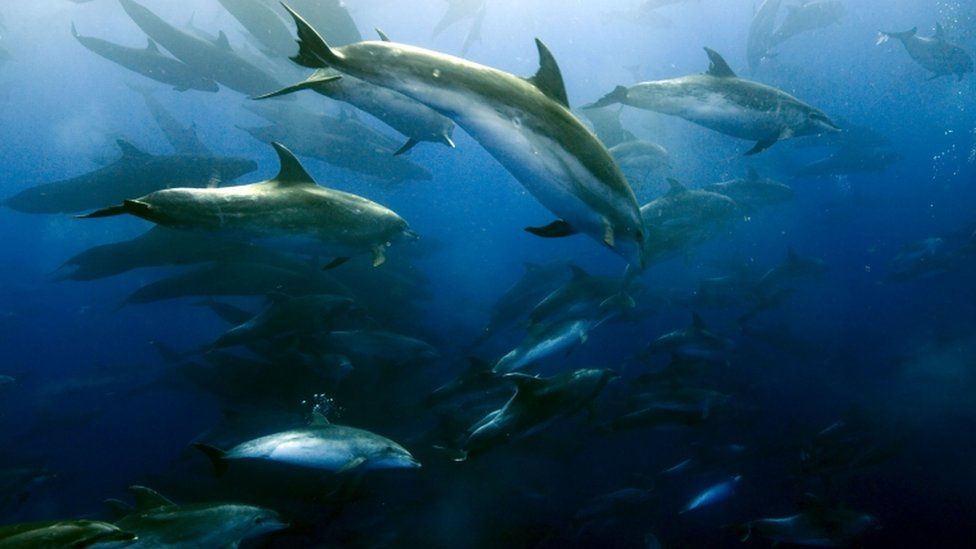
Sir David Attenborough has been named a Champion of the Earth by the UN’s Environment Programme.
The prestigious award recognises the 95-year-old’s commitment to telling stories about the natural world and climate change.
Accepting the award, Sir David said the world must take action now to protect nature and the planet.
His celebrated documentaries include The Green Planet and A Plastic Ocean.
Sir David said that environmental success stories should give us hope that change is possible.
“Fifty years ago, whales were on the very edge of extinction worldwide. Then people got together and now there are more whales in the sea than any living human being has ever seen,” he suggested.
“We know what the problems are and we know how to solve them. All we lack is unified action.”
UNEP Executive Director Inger Anderson said that the UN chose to recognise Sir David because of his devotion to broadcasting the natural world.

“If we stand a chance of averting climate and biodiversity breakdowns and cleaning up polluted ecosystems, it’s because millions of us fell in love with the planet that he captured on film and writing, in his voice,” said Inger Andersen, UNEP Executive Director.
Sir David began working on natural history programmes in the 1950s, and his programmes filmed in far-flung parts of the world became immensely popular. In the past four years, his warnings about the damage that climate change is causing the planet and humans have become more stark.
Sir David is particularly popular with children and teenagers worried about climate change. Teenage climate activist Greta Thunberg has said that meeting the broadcaster was “indescribable” and that everyone should strive to be like him.
Asked about Sir David, children visiting the London aquarium told BBC News they love watching him on TV and even have books about him.
“He does loads of things to support our planet and the animals. On his show, he tells us the natural world might be in danger if we don’t make a difference,” explains 10-year-old Raya.
She worries about the planet, saying she’s learned that “we need to stop using plastic, start using more electric cars, and we should plant more trees instead of cutting them down.”

Benjamin, 13, said watching Sir David’s programmes has inspired him to become a marine biologist. But they’ve also taught him about the danger we face from climate change and biodiversity loss.
“I want to be able to have a family and I want them to live a nice world. But if we start trying very hard, we can save the natural world,” he explained.
Sir David’s emphasis on success stories like bringing back whales from the point of extinction is important, Prof Rick Stafford, marine biologist at Bournemouth university, told BBC News.
“He really brought climate change and biodiversity loss to the forefront. Optimism is important but the major problems to be solved are not scientific – they are economic and political,” he explained.
Source BBC

